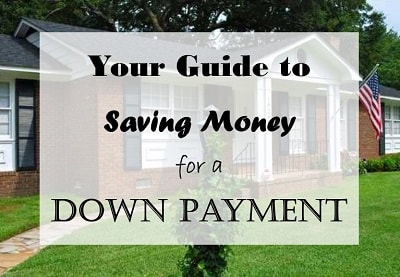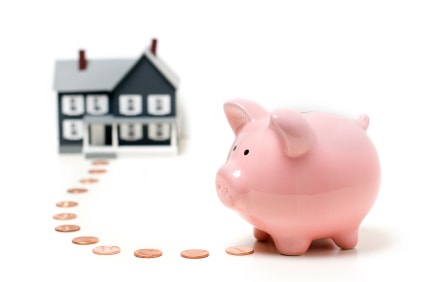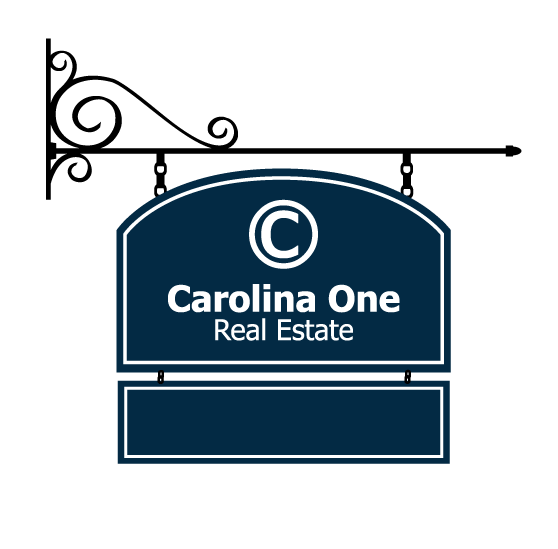Your Guide to Saving Money for a Down Payment
Posted by Lee and Katherine Keadle on Tuesday, February 16th, 2016 at 2:04pm.

For many home buyers, saving enough money for a down payment is the hardest part of the buying process. Some buyers have to wait years until they’ve saved the 3.5% to 5% needed to put down for a mortgage.
In Charleston, housing appreciation runs roughly 6% a year depending on the area, meaning that prices might be going up faster than a home buyer can save each year. With the low rates that we’re still seeing with mortgages and the ever-increasing home prices, it’s important for serious buyers to pinch their pennies or risk getting priced out of the homes they can afford.
The Importance of Time Frame (How Interest Rates Affect Your Purchasing Power)
As a general rule of thumb, a 1% change in mortgage rates produces a 10% change in your purchasing power. For example, if you’ve been approved to buy a $300K home when rates are at 5%, then if rates jump to 6% you’ll only be able to afford a $270K home with the same monthly payment amount. This is one way that buyers lose their purchasing power when it takes them years to save for a down payment. If you can put a time line on your plan for saving money (let’s say 1 year), you can save a lot of money in the long run and get more home for the money.
Figure Out How Much You Need to Save
Talk with a lender and real estate agent to figure out how much money you’ll need for a down payment. Your lender can also pull your credit reports so that you can check to make sure they’re accurate. Being a year or more out from purchasing will give you plenty of time to correct errors on your report. Your lender might also have recommendations for increasing your credit score which will help with your purchasing power.
Now that you have a goal down payment amount, divide this number by the number of months in your time frame. This amount will be your goal to save every month.
Every Home Buyer Needs a Budget
If you don’t know how much you’re spending each month (and where you spend it), you won’t be able to track how much you’re saving. Create a simple Excel sheet, or even write these Expense items on a sheet of paper every month if it’s easier for you to track:
- Current rent/housing
- Utility bills
- Water bills
- Cable and internet
- Groceries (including those miscellaneous items like toilet paper and toothpaste)
- Gas
- Pet costs
- Necessary costs (like health insurance or medication)
- Fun money (includes clothes, going out to eat, entertainment, trips to Starbucks, etc.)
Next, make an Income section where you put the amount you bring home from your job after taxes. A third section should show how much money is in your accounts, and the fourth (and most important) should show how much money you saved this month.
This itemized list is a good way to figure out where your money goes each month and how you can cut costs. It’s also helpful for comparing different months. For example, your utility bills in April should be drastically lower than December when you’re running your heat constantly. Finding trends in these expenses is the first step to reducing these costs. Financial experts like Dave Ramsey are great resources for getting more info on creating a budget, but I simply wanted to include this as part of this guide.
Find Ways to Reduce Your Expenses

To make it easier for you, we’ve included some suggestions:
- Get a roommate or move to a less expensive home.
- Use credit card points to buy gifts or gift cards for friends and family (or use the gift cards to buy groceries or everyday items you need).
- Consider dropping your cable and/or internet during your earnest money time frame. Even if you go to Starbucks every Saturday and spend $5 on food to enjoy free wi-fi, this is way less expensive than your internet bill.
- Go out to eat less. Some people find that using an allotted amount of cash per month keeps their budget in balance.
- Shop around for a less expensive auto insurance policy.
- If you own a bike and work nearby, biking is much less expensive than driving a car.
- Drop your gym membership to enjoy a run or walk in the (free) outdoor air!
- In the spring and fall, open your windows to reduce heating and cooling bills.
- New hobby: couponing.
Get Creative in Order to Add Income
If you’ve cut out all the frivolities and are looking to increase your bottom line each month, you might need to get creative. For example:
- Sell stuff: whether you choose the yard sale route, CraigsList, or eBay, this is a great way to make some extra money while getting rid of things you no longer use. Plus, keep in mind that you’ll be moving soon into a new home, so this will help reduce the amount of stuff you have to move!
- Get a weekend job.
- When friends, family, or your significant other ask you for gift ideas, think outside the box. Walmart or Target gift cards can be used for household items or groceries in addition to fun items. Or, ask for gift cards to your favorite restaurants so that these treats don’t come out of pocket!
- If you get a tax refund, put it directly in your savings account.
- Does your job allow you to work overtime?
Motivation
Now that you’ve talked with a lender and calculated the amount of money you need to save and your time frame, it really becomes a matter of buckling down your budget. As you get your finances in order, it might be motivated to start looking at homes online. This way, you can educate yourself on neighborhoods and get an idea of the types of homes in your price range. It also can serve as a reminder for why you’re saving your money. Also keep in touch with your real estate agent. When you’re ready to see homes, this is a great way to hone in on the neighborhoods that will be a good fit for you – even if you’re not yet ready to make an offer on a home.
If you’re considering purchasing real estate in Charleston, we at the Keadle Group are happy to help! We can recommend a trust worthy lender who can talk with you about your specific financial situation. Together, you can figure out how much you need to save, how much your monthly mortgage payments will be, and what price range of homes you should be looking in. Contact us to get started!


